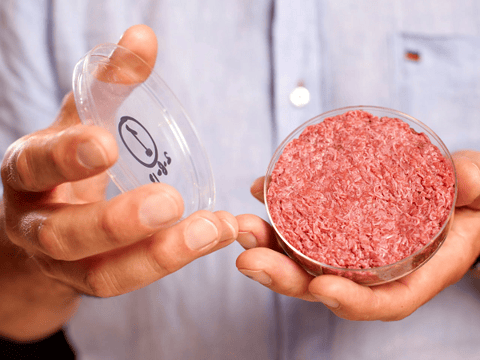
THE ENVIRONMENTAL IMPACT OF MEAT: THE RISE OF NEW PLANT-BASED ALTERNATIVES
The meat industry is now a major contributor to greenhouse gas emissions into the atmosphere, producing 14% of global emissions - more than the entire transportation sector, including trains, cars, planes, and trucks.
To support the 70 billion livestock animals that now populate the planet, hundreds of thousands of hectares of forests and woodlands have been destroyed in recent decades at every latitude.
Diets based on vegetables and legumes, therefore, have a significantly lower climate footprint. According to the IPCC![]() , by 2050 dietary changes and a greater propensity for vegetable and legume-based diets could free up several million square kilometers of land and reduce global CO2 emissions by up to 8 billion tons per year - about 21% of today's emissions. So, giving up red meat alone would make a big difference, reducing one's carbon footprint.
, by 2050 dietary changes and a greater propensity for vegetable and legume-based diets could free up several million square kilometers of land and reduce global CO2 emissions by up to 8 billion tons per year - about 21% of today's emissions. So, giving up red meat alone would make a big difference, reducing one's carbon footprint.
Clean Meat startups are popping up all over the world. However, our future meat options may not be limited to plant-based alternatives alone.
In 2013, Dr. Mark Post of Maastricht University made headlines around the world when he created a lab-grown beef burger that even bled and smelled like a hamburger.
The goal of these technologies is to disrupt the status quo of conventional animal farming, which can have major public health, regulatory and environmental implications. In terms of the health of our planet, these technologies could represent a significant opportunity to reduce the greenhouse gases that fuel climate change.
According to the new report released by the Boston Consulting Group (BCG) and Horizon Corporation (BHC), in effect, consumption of plant-based proteins and alternatives to meat is steadily increasing and will lead to a decrease in meat consumption by 2025.
By 2035, plant-based alternatives will make up 11% of the global protein market. With sales of at least $290 billion.
The origin of the "vegetarian butcher" and the food revolution
The Vegetarian Butcher was founded by Jaap Korteweg, a Dutch farmer who became a vegetarian in 1998 after the flu epidemic in the Netherlands.
Jaap is committed to rediscovering the unique flavor of meat, working closely with chefs, scientists, and plant protein producers, eventually developing a range of plant proteins that mimic the taste and texture of animal meat.
In 2018, The Vegetarian Butcher brand was acquired by Unilever with the aim of making it the largest "butcher" in the world. Today its products are offered in more than 45 countries.

About Trusted Corporation
This article is presented courtesy of Trusted Corporation. For more information and inquiries about cross-border and cross-industry collaboration, please visit their website at https://trusted-inc.com/![]()





